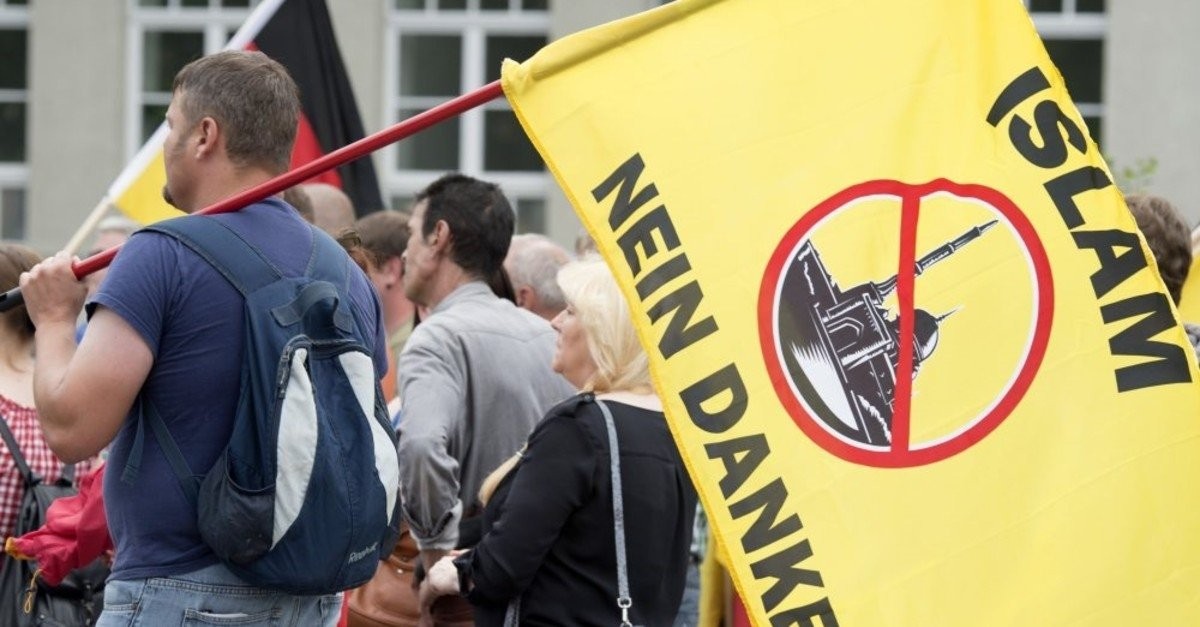 75
75
A new report has highlighted a surge in Islamophobic acts that went largely unnoticed in Germany after Muslim children's graves were vandalized in the north of the country last month.
On November 22, unknown attackers vandalized 25 Muslim children’s graves in Hanover, a move condemned by the head of the Muslim organization Niedersächsische Schura, Recep Bilgen, who had also called for a police investigation. At the time, police said they would launch an investigation, although they cited the likelihood of “animal or natural causes” as well as “personal fault.”
“Suspects are not currently being included in the process. Likewise, there is currently no concrete evidence of an Islamophobic connection,” they said. But the Middle East Eye said in a report on Sunday that the incident is seen as yet another form of bigotry against Muslims. “We deeply pity the victims’ families… Desecration of graves, whether of children or adults, is one of the many repugnant forms of hatred against Islam and Muslims in our country,” said Khallad Swaid, president of the Muslim German organization Die Deutsche Muslim Community” the Middle East Eye.
Nonetheless, Swaid attributed the rise in anti-Muslim bigotry to the hostile rhetoric of German figures. “It is the result of hostile language, particularly from the far-right movements that have found their way into public opinion in our society and are given stages in many of our media platforms to spread their hatred of Islam and Muslims,” he said he. Noting that the Hanover incident had not received widespread recognition from either politicians or civil society, Swaid said, “That’s another layer of the problem.”
“Until racism is identified and condemned as such, and the perpetrators are not convicted and given the full force of the law, we will not be able to combat hatred of Islam and Muslims,” he added. The destruction of graves in Hanover was not the first incident in which Muslim graves were attacked in Germany. Earlier this year, unknown persons knocked over 30 Muslim gravestones in the city of Iserlohn. Anna Esther-Younes, researcher on anti-Muslim racism in Europe, noted that the phenomenon of targeted vandalism in Germany has historical roots.
“I don’t know of a decade in Germany after World War II that went without vandalism on Muslim, Jewish or Sinti and Roma cemeteries in Germany,” Younes told MEE. “In terms of the political climate, it is important to understand that the destruction of minority cemeteries, along with the destruction of memorial sites, shows two things: on the one hand, society has become more aware of the danger of white supremacists, and on the other, it shows how far we have come are right.” The MEE reported that hatred of Muslims in Germany has increased in recent years, adding that in the past year alone 662 attacks on Muslims by mostly right-wing extremists were registered. However, they received little attention in the German media.
The report also states that the total number of anti-Muslim crimes in the past year is likely much higher if such crimes are not sufficiently flagged. A recent study by the German Advisory Council on Integration and Migration (SVR) found that Islamophobic attitudes are widespread in Germany. “Negative attitudes towards Islam are widespread in all groups examined – people with and without a migration background”, according to the SVR.
Comment
Post a comment for this article